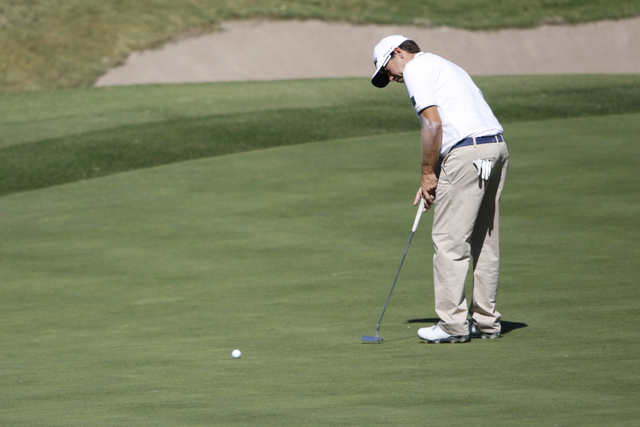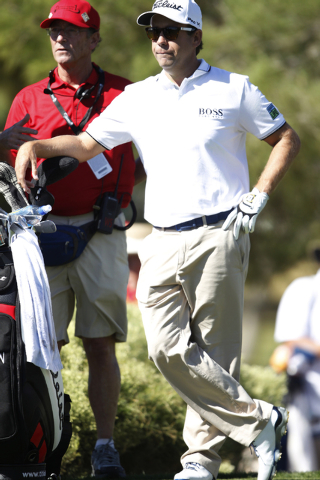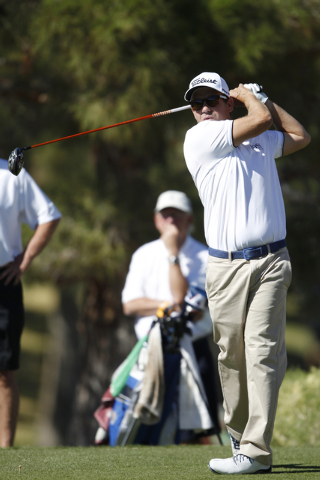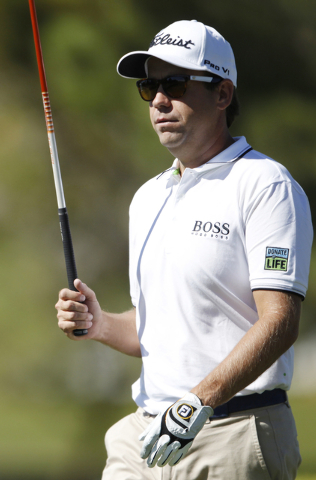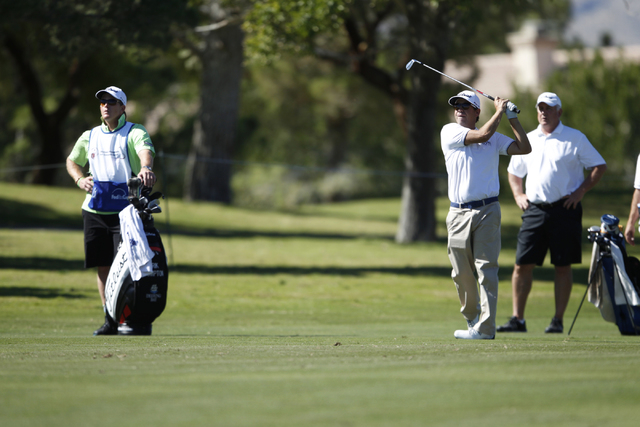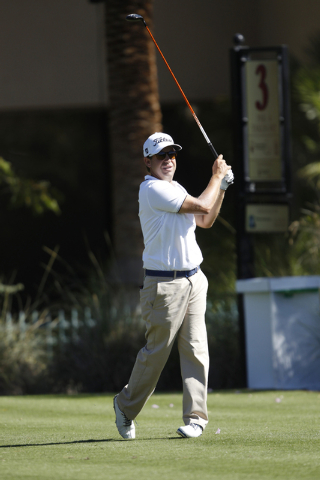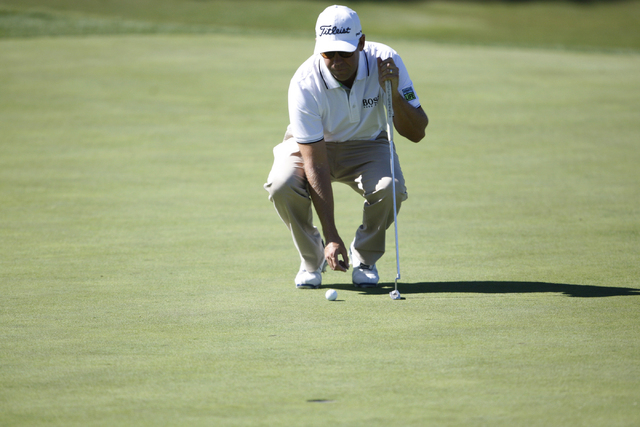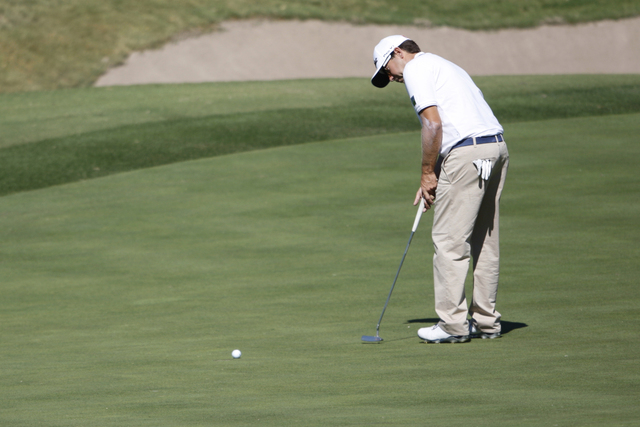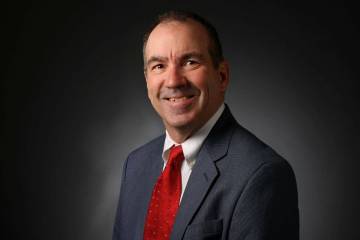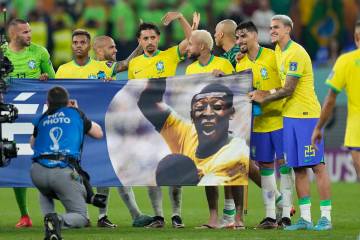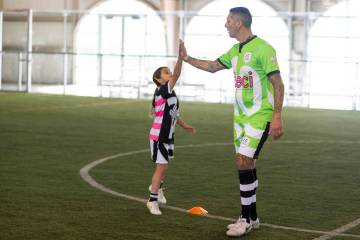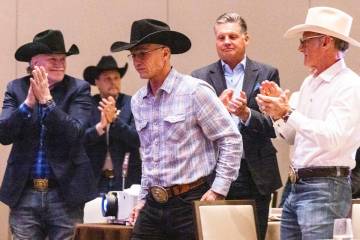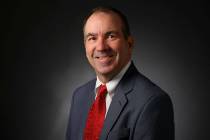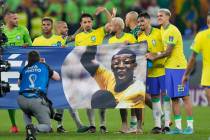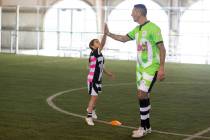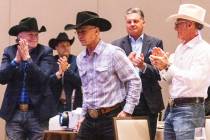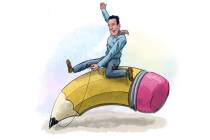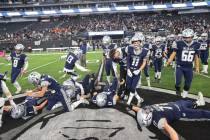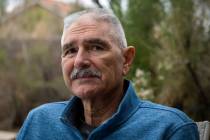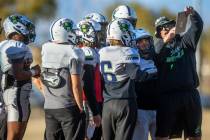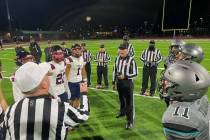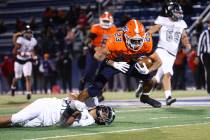Compton hopes play helps others
It has been said that nobody remembers who finishes second, a generalization that in most cases probably is true.
People remember that Smokin’ Joe Frazier finished second to Ali in the “Thrilla in Manila,” and maybe if you are related to Suzette Charles, Miss New Jersey 1983, you may recall she was the one who finished second to Vanessa Williams in the Miss America pageant before those Penthouse pictures surfaced.
Or you may not.
Because society has a short attention span for those who come up just a little short.
So people may soon forget that Erik Compton finished tied for second in the 2014 U.S. Open at Pinehurst in North Carolina.
It was a mostly forgettable Open, devoid of the usual final-round drama and clutch putts that curl into the cup. Martin Kaymer of Germany won, and he won by eight strokes. Rickie Fowler and Compton were distant runners-up. They were so far back that even if Kaymer were to pose for Golf Digest without his wood covers, they’d probably still let him keep the win.
Rickie Fowler is the guy who plays pro golf with the sort of shaggy haircut style you may have sported in high school.
Erik Compton is the guy who plays pro golf with a transplanted heart.
This is why people should remember that Compton finished second to Martin Kaymer at the U.S. Open.
When we spoke Wednesday, the most admirable of major tournament runners-up was sitting at a table by the caddie shack near the driving range at TPC Summerlin. In a little bit, he would be teeing off in the Shriners Hospitals for Children Open Pro-Am with well-heeled amateurs who would ask him questions about hitting 5-irons from tricky lies.
He was not whacking golf balls at distant targets, because, let’s face it, sometimes that seems a waste of time when one hits golf balls as straight and as far as the pros hit ’em.
Compton, 34, was applying dollops of sunscreen to wiry forearms that help him drive a golf ball 283.3 yards on average, and to any other bits of uncovered skin. It’s one of the last things he does before playing golf.
People in the gallery don’t see him gulp down a handful of pills every morning, and another handful at night, and a couple more on the back nine should he feel a little flutter in his chest or another headache coming on.
This is the only life that Erik Compton knows.
Diagnosed with viral cardiomyopathy when he was 9, Compton underwent a heart transplant at 12. When he awoke from surgery, he told his parents he still was going to play baseball in the major leagues.
The doctors smiled and said playing golf might be better therapy, so Erik Compton played golf, and he got so good at it that Georgia offered him a scholarship. He would go on to play on the Nationwide Tour, and on the Hooters Tour, and on the Canadian Tour, which can be difficult for a guy from Miami.
Then he had a second heart transplant, in 2008.
My lord. How much can one man endure?
Two years later, Compton made the cut at the U.S. Open. Then in June, he finished tied for second there with the shaggy-haired kid.
I know Tiger Woods has a bad back, and it seems pretty chronic, and it’s difficult to hit a golf ball straight with a crooked back. I’d bet Erik Compton still would trade places.
Compton said it was nice when the golf writers asked him a question about his short game or whatever after he signed his scorecard at Pinehurst. But he knew there would be a follow-up question, and he knew what it would be about.
“Yeah, I guess it was nice to play well for me and my family,” said Compton, who met his Argentinian wife, Barbara, when he was awaiting his second donor heart. Compton was going though a rough patch then. Sometimes he would get behind the wheel of his leased BMW and see how fast he could go.
Sometimes he’d push the needle above 150.
But then he met Barbara, and now he doesn’t drive so fast.
And now the Comptons have a little girl named Petra.
“There’s no way around it,” he said after I began to ask the questions he always gets asked. “But it’s good to be on a national stage to maybe get a few more people (with dire heart conditions) motivated.”
When I told Compton that I was an acquaintance of former UNLV soccer star Simon Keith, one of the world’s oldest surviving heart transplant recipients, he was the one who started asking questions.
How old was he when he received his heart? Does he take medication? Does he still feel good?
Erik Compton says surviving two heart transplants gives a guy perspective, but sometimes he still sweats the little stuff, like when the group in front of him is playing too slowly. Because he’s still a hell of a competitor out there.
His tee time was coming up, so I wished him well. Back inside the media tent, no more than a chip shot from where we had been sitting, somebody asked Webb Simpson, last year’s Shriners Open champ, about the Ryder Cup.
Simpson answered the question with tact and aplomb. But then he said at the end of the day, the Ryder Cup is still just a competition and not a matter of life and death.
Las Vegas Review-Journal sports columnist Ron Kantowski can be reached at rkantowski@reviewjournal.com or 702-383-0352. Follow him on Twitter: @ronkantowski.



